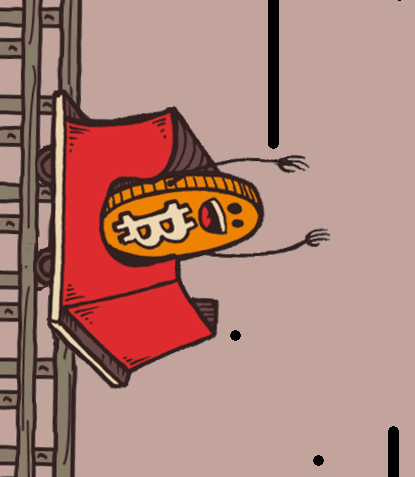In the world of crypto, and particularly among the big Bitcoin believers, few figures loom as large as Michael Saylor. The MicroStrategy CEO and member of President Trump’s Crypto Summit, has become synonymous with corporate Bitcoin adoption, transforming his business intelligence firm into what amounts to a $35 billion Bitcoin holding company. Like clockwork, quarter after quarter, Saylor's company would announce yet another massive BTC purchase, doubling down on their big crypto bet while traditional finance looked on in disbelief. But in the wake of Trump’s tariffs, something just happened that hasn’t occurred for over five years: Michael Saylor’s Bitcoin buying spree has ground to a halt.

According to an April 7 SEC filing, MicroStrategy didn't purchase a single Bitcoin between March 31 and April 6. And sure, a week long pause might seem insignificant for most companies, but for Saylor's operation, this represents a big shift in their strategy. For context, Saylor basically turned "buy the dip" into their corporate policy. And this unexpected hesitation comes at a particularly precarious moment for crypto and broader markets, with Bitcoin shedding 10% of its value following President Trump's sweeping tariff announcements. The timing raises serious questions that one of Bitcoin's loudest and biggest believers is getting cold feet amid growing economic uncertainty. And if that’s the case for a Bitcoin maxi, what should the rest of us be doing?

Well, it’s no surprise that Trump's recent tariff policies – including 10% duties on imports from nearly every country and threats to hike China-specific tariffs to 50% – have sent shockwaves through both traditional and digital markets. The resulting volatility has left Saylor’s MicroStrategy sitting on $5.91 billion in unrealized losses from its 528,185 BTC holdings. Even more telling is the uncharacteristic silence from Saylor himself, who has built a reputation on very big, very controversial Bitcoin predictions and relentless optimism. This man literally tweeted about Bitcoin's inevitable rise dozens of times a week. But now, he’s gone suspiciously quiet as the market rapidly deteriorates.
And that silence is a weird play, because Trump's tariffs are drawing more and more public criticism - even from former allies like billionaire investor Bill Ackman, who typically supports the administration's economic policies.

"Whoever is recommending that idea to President Trump should be fired now," Ackman tweeted as markets reeled from the tariff news, highlighting how quickly political winds can shift. This public rift among financial elites underscores the complex interplay between geopolitics and crypto markets – an interplay that even true believers like Saylor have to be aware of… so it begs the question, what is he thinking? That’s too much speculation to cover here though. All we can really cover is Bitcoin.
So, what does Saylor’s pause in buying actually mean for Bitcoin's future? And should we be too concerned? Market analysts are reading the tea leaves carefully. Some suggest MicroStrategy may simply be conserving cash in case Bitcoin prices dip further, maintaining dry powder for better buying opportunities ahead. Others point to increasing regulatory scrutiny, with the SEC taking a harder look at how companies account for cryptocurrency holdings on their balance sheets. Then there's the possibility that even Saylor recognizes the need for caution amid unprecedented macroeconomic turbulence, with trade wars threatening to reshape global markets in unpredictable ways. Staying on the sidelines might just be the most sensible play at this stage.

What makes this moment particularly interesting though, is what it reveals about crypto's maturation as an asset class. For years, Bitcoin maximalists argued that cryptocurrency existed outside traditional financial systems, immune to the whims of central banks and government policies. Saylor's pause tells us a different story – one where even the most committed Bitcoin holders must contend with the realities of global economics. When the man who turned his company into a Bitcoin proxy suddenly stops accumulating, it sends ripples through the entire ecosystem.
As we watch this drama unfold, several key big questions are left unanswered: Is this merely a temporary pause in MicroStrategy's buying spree, or does it mark the beginning of a more cautious approach? How will other institutional investors interpret Saylor's hesitation? And what does this say about Bitcoin's ability to weather the storm of global economic uncertainty?

The answers to these questions may determine whether Bitcoin's recent slump proves temporary or marks the start of a more significant correction. But we can be pretty confident in one thing: in the world of crypto investing, when the whales change their behavior, the entire market takes notice. The coming weeks will reveal whether this is merely a speed bump on Bitcoin's road to mainstream adoption or a sign of more turbulent times ahead.
For now, all eyes remain fixed on MicroStrategy's next move.
Will Saylor resume his aggressive accumulation once market conditions stabilize? Or has the Bitcoin oracle himself finally met a dip too steep to buy? Whatever comes next, this episode has already rewritten the playbook for how we understand institutional crypto investment in an increasingly complex global economy.